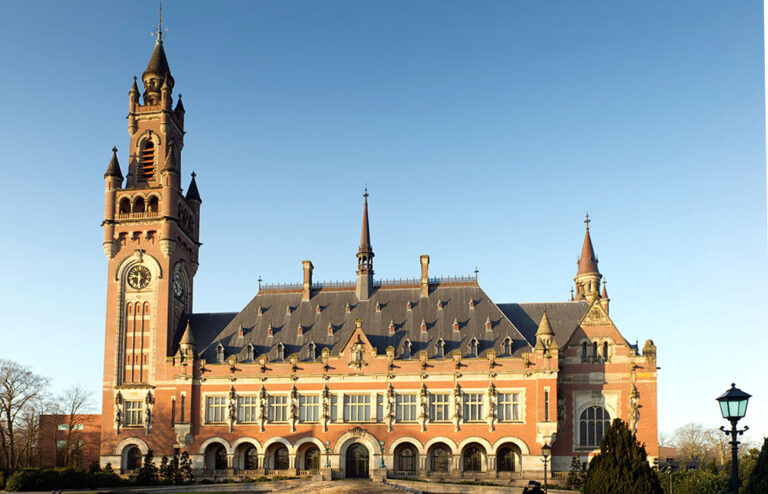
New Delhi: Union Home Minister Amit Shah today introduced three new Bills in the Lok Sabha by repealing Indian Penal Code (IPC), 1860, Criminal Procedure Code, (1898), 1973 (CrPC), and Indian Evidence Act, 1872, which were enacted by the British and passed by the British Parliament.
The Government said it will replace the Indian Penal Code, 1860 by Bharatiya Nyaya Sanhita Bill, 2023. The Criminal Procedure Code, 1898, will be replaced by the Bhartiya Nagarik Suraksha Sanhita Bill, 2023 and the Indian Evidence Act, 1872, will be replaced by the Bharatiya Sakshya Bill, 2023.
“These three outgoing laws were made to strengthen and protect the British rule and their purpose was to punish, not to give justice,” Shah said, adding that the soul of the three new laws will be to protect all the rights given to Indian citizens by the Constitution, and, their purpose will not be to punish but give justice and in this process, punishment will be given where it is required to create a sense of prevention of crime. He contended that these three laws made with the Indian thought process will bring a huge change in the criminal justice system of the country.
All these three bills have basic laws for the criminal justice system, the Union Home Minister said and pointed out that in the current laws, heinous crimes like murder or crime against women were placed very low and crimes like treason, robbery and attack on the official of the government were kept above these. “We are changing this approach and the first chapter in these new laws will be on crimes against women and children. The second chapter will be on murder/homicide and criminality with the human body. We have brought this law by taking a very principled decision of bringing the citizen at the centre instead of governance,” he said.
Shah said extensive consultation was done to make these new laws. He said that in August 2019, he had written letters to all the judges of the Supreme Court, the Chief Justices of all the High Courts of the country and all the law universities of the country. In 2020, letters were written to all Members of Parliament, Chief Ministers, Governors and Administrators of Union Territories. “After extensive consultation, today this process is going to become a law,” he said. He further elaborated that 18 States, 6 Union Territories, the Supreme Court, 16 High Courts, 5 Judicial Academies, 22 Law Universities, 142 Members of Parliament, about 270 MLAs and the public gave their suggestions regarding these new laws, and for 4 years these were discussed in depth and he himself was present in 158 meetings.
Union Home Minister said that Bharatiya Nagarik Suraksha Sanhita Bill, which will replace CrPC, will now have 533 sections. While 160 sections have been changed, 9 new sections have been added and 9 sections have been repealed. The Bharatiya Nyaya Sanhita Bill, which will replace the IPC, will have 356 sections instead of the earlier 511 sections. 175 sections have been amended, 8 new sections have been added and 22 sections have been repealed. The Bharatiya Sakshya Bill, which will replace the Evidence Act, will now have 170 sections instead of the earlier 167, and 23 sections have been changed, one new section has been added and 5 repealed.
Shah stressed that these three old laws were full of signs of slavery, they were passed by the British Parliament and “we only adopted them”. These laws, he said, refer to the Parliament of the United Kingdom, Provincial Acts, Notifications by the Crown Representative, London Gazette, Jury and Barristers, Lahore Government, Commonwealth Resolutions, United Kingdom of Great Britain and Ireland Parliament. “These laws include the references to Her Majesty’s and by the Privy Council, these laws were based on the Copies and Extracts Content in the London Gazette and Possession of the British Crown, Court of Justice in England and Her Majesty’s Dominions are also mentioned at many places in these laws,” he said and added: “By ending these 475 signs of slavery, we have brought new laws today. We have tried to connect the new era with these laws. Our criminal justice system takes a long time, justice is delivered so late that justice has no meaning, and people have lost faith and are afraid to approach the court.”
The Home Minister said that state-of-the-art technologies have been incorporated into the new laws. The definition of documents has been expanded to include electronic or digital records, e-mails, server logs, computers, smartphones, laptops, SMS, websites, locational evidence, mail and messages available on devices, which can be used in courts, which will give freedom from the pile of papers. He said that a provision has been made in this law to digitize the entire process from FIR to case diary, case diary to charge sheet and from charge sheet to judgement.
“At present, only the appearing of the accused in court can be done through video conferencing, but now the entire trial, including cross-questioning, will be done through video conferencing. Examination of complainant and witnesses, investigation and recording of evidence in trial and High Court trial and entire appellate proceedings will now be possible digitally. “We have made it after discussing with National Forensic Science University and scholars and technical experts from all over the country on this subject. We have made videography compulsory at the time of search and seizure, which will be part of the case and this will save the innocent citizens from being implicated. No charge sheet will be valid without such recording by the police,” Shah said.
Referring to a very low conviction rate even after 75 years of independence, the Union Home Minister said that is why the government has moved to promote forensic science. “Prime Minister Narendra Modi has taken a historic decision to establish National Forensic Science University. After three years, the country will get 33,000 forensic science experts and scientists every year. In this law, we have set a target to take the conviction ratio above 90 per cent. For this, an important provision has been provided which will make the visit of the forensic team to the crime scene compulsory for offences punishable for 7 years or more,” he said adding that through this, the police will have scientific evidence, after which the chances of acquittal of the culprits in the court will be significantly reduced.
“We will computerize all the courts in the country before the year 2027. Similarly, mobile forensic vans have also been experienced. In Delhi, we have done a successful experiment that the FSL team visits the scene of any crime with a provision of punishment of more than 7 years. For this, we have launched the concept of Mobile FSL which is a successful concept and there will be 3 mobile FSLs in every district that will go to the crime scene,” he said.
Shah said that for the first time after 75 years of independence, “we are starting Zero FIR to ensure the convenience of the citizens”. He explained that wherever the crime may have happened, the citizens will be able to lodge complaints even outside of their police station area. Within 15 days of the registration of the crime, it will have to be forwarded to the concerned police station. “For the first time, we are adding the provision of e-FIR. Every district and police station will designate a police officer who will inform online and in person about the arrest to the family of the arrested person,” he said and also highlighted that the statement of the victim has been made compulsory in the case of sexual violence, and video recording of the statement has also been made compulsory in the case of sexual harassment. It will be compulsory for the police to give the status of the complaint to the complainant within 90 days and thereafter every 15 days. “No government will be able to withdraw a case of imprisonment of 7 years or more without hearing the victim, this will protect the rights of the citizens. Under this law, for the first time, we are bringing community service as a punishment. The scope of summary trial in small cases has also been increased, now offences punishable up to 3 years will be included in a summary trial, with this provision alone more than 40 per cent of cases in sessions courts will be finished,” he said.
A time limit of 90 days has been fixed for filing the charge sheet and depending on the situation, the court will be able to give permission for a further 90 days. In this way, within 180 days the investigation will have to be completed and will be forwarded for trial. Courts will now be bound to give notice of framing of charges to the accused person within 60 days. The judge will have to give the decision within 30 days of the completion of the argument, this will not keep the decision pending for years, and the decision will have to be made available online within 7 days.
Union Home Minister said that the government will have to decide on the permission for trial against a civil servant or police officer within 120 days, otherwise it will be treated as deemed permission and the trial will be started. “We have made another big revolutionary change, the SP who is currently working will testify after seeing the same file, the earlier concerned officer was not required to come, which will provide quick testimony and justice will also be delivered soon. Apart from this, we have also brought a provision for the attachment of the property of declared criminals. We are also adding a new provision of different types of harsh punishment against inter-state gangs and organized crimes in this law. We have also made many provisions to deal with crime and social problems against women,” he said.
For the first time, a provision has been made to criminalize sexual intercourse on the basis of false promises of marriage, employment and promotion and on the basis of false identity. “In all cases of gang rape, a provision of 20 years of punishment or life imprisonment has been made, which is not being implemented today,” he pointed out. In the case of girls below 18 years of age, a provision for the death penalty has also been kept. For mob lynching all three provisions of 7 years, life imprisonment and death penalty have been kept. There was no provision for mobile phones or chain snatching from women, but now provision has been kept for the same.
Shah said that now there will be separate provisions for cases of grave injury and cases of minor injury. Earlier there was a provision of punishment of 7 years.
He said that in case of permanent disability or brain dead, a provision has been made for a punishment of 10 years or life imprisonment. The punishment for offences against children has been increased from 7 years to 10 years. Provision has also been made to increase the amount of fines for “many crimes”. There is also a provision of 10 years of imprisonment for criminals who run away from custody. “There were many cases of using pardon from sentences for political gains, now the death penalty can be changed to life imprisonment, life imprisonment to a minimum of 7 years and 7 years to a minimum of 3 years, no culprit will be spared,” he said.
Noting that earlier there was no definition of terrorism, he said that now crimes like secession, armed insurgency, subversive activities, separatism, and crimes like challenging the unity, sovereignty and integrity of India have been defined in this law for the first time and the rights have been given to confiscate the properties of those related to these crimes. The court will order this on the cognizance of the investigating police officer.
Shah further informed about the decision regarding trial in absentia. The Sessions Court Judge, after due process, will try and sentence a person declared a fugitive in absentia, no matter where in the world (s)he may be hiding. (S)He will have recourse to Indian law and court to appeal against the sentence.
Referring to a large number of case properties lying in police stations across the country, the Minister said these can be disposed of by videography and submitting the verified copy to the court. He said that a total of 313 changes have been made in this law which will bring a widespread change in our criminal justice system and anyone will be able to get justice within a maximum of 3 years. Shah said that special care has been taken of women and children in this law, it has been ensured that the criminals are punished and such provisions have also been made to prevent the police from misusing their powers.
“On the one hand, laws like sedition have been repealed, on the other hand, provision of punishment for exploiting women by cheating and heinous crimes like mob lynching, and cracking down on organized crimes and terrorism has also been done,” he said.
Responding to the Government’s move, Rajya Sabha MP and senior advocate Kapil Sibal, who is also a former Union law minister, told a news agency that “On one hand, they [the government] are giving more power to police and on the other hand silencing people…this is unacceptable…”.
However, President of the Supreme Court Bar Association and a former vice-chairman of the Bar Council of India, Dr Adish C Aggarwala, welcomed the government’s decision to bring drastic changes in criminal law of the country as it plans to include acts of secession, armed rebellion, subversive activities, separatist activities or endangering sovereignty or unity and integrity of India as “offences against the state”.
“These amendments are need of the hour. These timely amendments will ensure the internal security, unity and integrity of the country and will curb activities of anti-national forces,” he said.
“Overhauling of criminal laws is a strong and confident step towards strengthening the social and secular fabric of the nation,” he said. He pointed out that the new bill proposes stricter punishments for crimes against women and children. The accused persons who are evading arrest can be tried in their absence. “This amendment will expedite the disposal of criminal cases in the country,” he noted and pointed out that offences have been made gender-neutral. “In order to deal effectively with the problem of organised crimes and terrorist activities, new offences of terrorist acts and organised crime have been added with deterrent punishments,” he said.
– global bihari bureau





